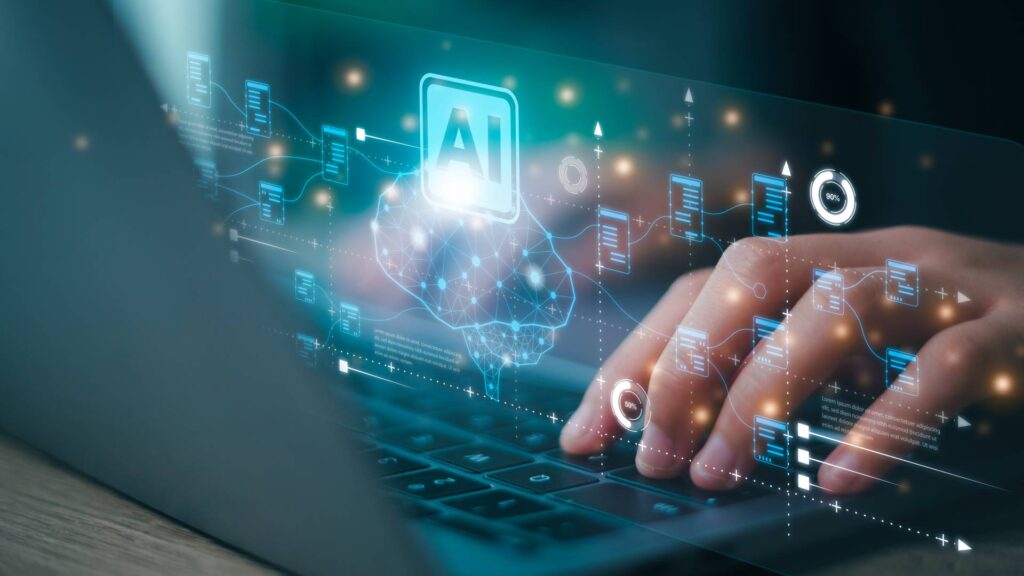Why Artificial Intelligence Can’t Replace CEOs

This article was originally published on Outlook.
When we reflect in years to come, we’ll probably agree that 2023 was a breakthrough year for Artificial Intelligence (AI). Powerful chatbots such as ChatGPT have sparked a society-wide surge of interest in AI technology; and all around the world people are pondering its implications, debating whether it will bring a positive revolution or the beginning of the end for life as we know it.
Despite its recent rapid advancements, AI isn’t new. I’ve spent the last 30 years researching AI and we can trace its foundations back to at least the 1950 research paper ‘Can Machines Think’ written by the British mathematician Alan Turing. Over the course of the 70-plus years since, interest and advances in AI have come and gone. Today it’s so much more than a thought experiment, as it routinely impacts our daily lives.
Some advocate grasping the opportunities with both hands, believing it will change the world for the better; then there are those who advise real caution, wary of the potential extent of its impact. Both sides are right and have valid points to make. Yes, AI is transforming society, and this will become ever more pronounced as the technology improves and we think of more creative ways to deploy it.
But AI systems will not become all-powerful, take over the world, or lead to human extinction.
In conversations I have, one of the common concerns is AI’s potential impact on people, particularly whether it will render jobs obsolete. While there will be increasing use of AI to automate some routine tasks within jobs, I see less scope for wholesale replacement of jobs. AI will also, of course, create new types of jobs.
If we consider leadership roles, such as a CEO or a Vice-Chancellor, AI systems just don’t have the human elements that are crucial for effective leadership. AI systems are poor at social interactions; they don’t know how to be effective collaborators, good team players or robust challengers of human decisions. AI systems don’t inspire and motivate staff in the way that the best CEOs do.
And there are issues with the way AI systems make decisions — most can’t readily explain why they made a particular decision — and chatbots in particular are prone to hallucination, which means they can give convincing, but entirely fictitious, answers. They have no intuition or insight about when they may be wrong.
So, while it’s likely that AI will be used to enhance CEO roles, its inability to replicate fundamentally human qualities such as emotional intelligence, creativity, strategic vision and interpersonal skills limits its capabilities.
In my opinion, CEOs should be thinking about how AI systems can better partner with people. This is a significantly understudied area. At the moment, many human-computer interactions are awkward. Computers have rigid interfaces and humans need to adapt to them.
Computers need to be more flexible, better problem-solving partners, better collaborators, and better advice givers. AI systems will be most effective when they work in partnership with humans, making the most of the complementarity between the tasks that smart machines are good at and those at which humans excel.
CEOs should be thinking, and learning, about how these powerful tools can enhance their work — and that’s where the higher education sector has a significant role to play.
We have a duty to prepare our students to be purpose-driven people, part of a global workforce in which they routinely use AI tools in a responsible manner to help organisations perform better. The DigiLabs we’re creating at Loughborough University, for example, will ensure that our graduates are future-fit for the world of work in which digital skills, data analytics, and virtual and augmented reality play a key part. As employees or company CEOs, they’ll be able to reap the positive benefits of AI and machine learning.
Overall, I believe AI systems will be positive for society, helping us tackle global challenges such as climate change, population health and productivity. But we need to consider how best to progress in a responsible way.
AI will soon power even more of our lives. Early glimpses of this are evident today, but we have only just started to scratch the surface of what AI can do for our businesses.
Vice-Chancellor's Communications
Opinions and comment from the Vice-Chancellor, Professor Nick Jennings

